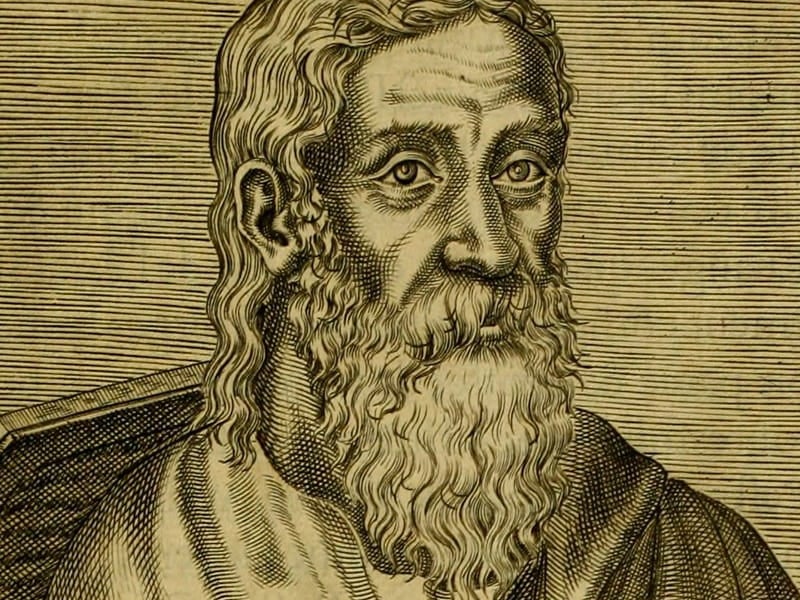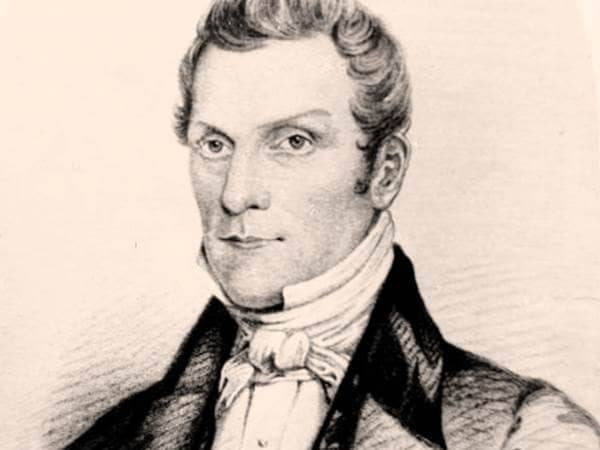
- Profession: Philosopher
- Lived: 150 AD - 215 AD
- Nationality: Italian
- Known for: Christian theologian
- Fun Fact: Clement converted to Christianity.
- Fun Fact: He taught at the Catechetical School of Alexandria.
Titus Flavius Clemens, also known as Clement of Alexandria, was a Christian theologian and philosopher who taught at the Catechetical School of Alexandria. Among his pupils were Origen and Alexander of Jerusalem. A convert to Christianity, he was an educated man familiar with classical Greek philosophy and literature. As his three major works demonstrate, Clement was influenced by Hellenistic philosophy more than any other Christian thinker of his time, particularly Plato and the Stoics.
His works, which exist only in fragments, suggest that he was familiar with pre-Christian Jewish esotericism and Gnosticism. In one of his works, he argued that Greek philosophy had its origin among non-Greeks, claiming that Egyptian scholars taught both Plato and Pythagoras. Clement is usually regarded as a Church Father. He’s worshipped as a saint in Coptic Christianity, Eastern Catholicism, Ethiopian Christianity, and Anglicanism. He was revered in Western Catholicism until 1586 when his name was removed from the Roman Martyrology by Pope Sixtus V at the advice of Baronius. The Eastern Orthodox Church officially stopped any veneration of Clement of Alexandria in the 10th century.
Having rejected paganism as a young man due to its perceived moral corruption, he traveled in Greece, Asia Minor, Palestine, and Egypt. Clement’s journeys were primarily a religious undertaking. In Greece, he met an Ionian theologian named Athenagoras of Athens. While in the east, he was taught by an Assyrian, identified as Tatian, and a Jew, possibly Theophilus of Caesarea. Around 180 A.D., Clement reached Alexandria, where he met Pantaenus, who taught at the Catechetical School of Alexandria. Clement studied under Pantaenus and was ordained to the priesthood by Pope Julian before 189. Otherwise, virtually nothing is known of Clement’s personal life in Alexandria.
His works, which exist only in fragments, suggest that he was familiar with pre-Christian Jewish esotericism and Gnosticism. In one of his works, he argued that Greek philosophy had its origin among non-Greeks, claiming that Egyptian scholars taught both Plato and Pythagoras. Clement is usually regarded as a Church Father. He’s worshipped as a saint in Coptic Christianity, Eastern Catholicism, Ethiopian Christianity, and Anglicanism. He was revered in Western Catholicism until 1586 when his name was removed from the Roman Martyrology by Pope Sixtus V at the advice of Baronius. The Eastern Orthodox Church officially stopped any veneration of Clement of Alexandria in the 10th century.
Early Life
Neither Clement’s birthdate nor birthplace is known with any degree of certainty. It is speculated that he was born sometime around 150 AD. According to Epiphanius of Salamis, he was born in Athens, but there is also a tradition of an Alexandrian birth. His parents were pagans, and Clement was a convert to Christianity. In the “Protrepticus,” he displays an extensive knowledge of Greek religion and mystery religions, which could have arisen from the practice of his family’s faith.Having rejected paganism as a young man due to its perceived moral corruption, he traveled in Greece, Asia Minor, Palestine, and Egypt. Clement’s journeys were primarily a religious undertaking. In Greece, he met an Ionian theologian named Athenagoras of Athens. While in the east, he was taught by an Assyrian, identified as Tatian, and a Jew, possibly Theophilus of Caesarea. Around 180 A.D., Clement reached Alexandria, where he met Pantaenus, who taught at the Catechetical School of Alexandria. Clement studied under Pantaenus and was ordained to the priesthood by Pope Julian before 189. Otherwise, virtually nothing is known of Clement’s personal life in Alexandria.
Theological Works
Three of Clement’s major works have survived in full, collectively referred to as a trilogy. They are “The Protrepticus,” “The Paedagogus,” and “The Stromata.” “The Protrepticus” is an appeal to the pagans of Greece to adopt Christianity. Within it, Clement demonstrates his extensive knowledge of pagan mythology and theology. The title of “Paedagogus,” meaning tutor, refers to Christ as the teacher of all humans, and it features an extended metaphor of Christians as children. It is not simply instructional, but Clement intends to show how the Christian should respond to the love of God authentically. The contents of “The Stromata” are miscellaneous. Its place in the trilogy is disputed; Clement initially intended to write the “Didasculus,” a work that would complement the “Paedagogus” ’s practical guidance with more academic theology schooling.Clement’s Death
During the Severian persecution of 202–203, Clement left Alexandria. In 211, Alexander of Jerusalem wrote a letter commending him to the Church of Antioch, implying that Clement was living in Cappadocia or Jerusalem at that time. He died around 215 AD at an unknown location.
Back to Search Results






